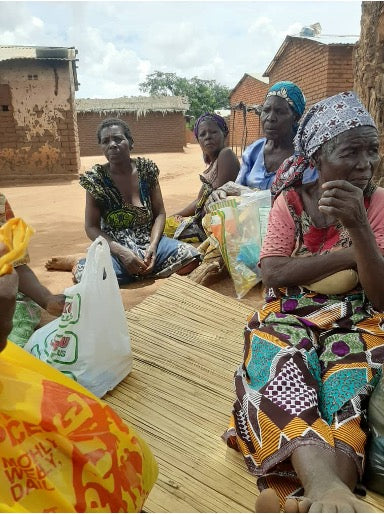Meet A Gift To Africa Partner Liaison in Malawi – Barbara Banda

As we celebrate International Women Day (March 8) and women’s’ History month (March), we thought it was a good time to introduce you to our fearless partner and a tireless advocate for women empowerment in Malawi. We thought this would also be appropriate time to let our patrons know the plight of where things stand during this Covid19 period among women in Africa, and in this particular case, Malawi.
Here is an interview I had with Barbara:
Barbara, tell us about yourself?

I am a Social Entrepreneur at heart and professional coach. I studied Development Management, Marketing, Gender and Trade and have over thirty years’ experience working with communities as a consultant in the Sub-Saharan Africa region addressing issues of governance, gender equality, and poverty alleviation.
Over and above this, I am the chairperson of the Gender Coordination Network, a grouping of fifty-four Non-Governmental Organizations that focuses on policy advocacy in Malawi. I also sit on the Steering Committee of Business and Profession Women (Malawi), the African Women Leaders Network and on several other boards.
Tell us about Malawi? How has the Malawian economy been since COVID19?

Focusing on Women, how has COVID affected women in Malawi?
Women businesses are in the MSME category with no access to insurance and targeted financial instruments. The COVID response by government lacked support for such groups and this has more women than men close their businesses because their capital was diverted to health and household food requirements. With schools being closed and family members spending time together, there is an increase in gender-based violence and teen pregnancies. The poor have been hardest hit because of their dependence on small business with daily incomes to sustain them.
Women because of their gender roles to provide care work, have been exposed to the COVID at multiple levels. The loss of incomes because of business closures has increased the burden on women to provide for their children and extended families. This has pushed women into exposing themselves to risky environments in search of livelihoods. For women it has been a double pandemic!
- What could be some solutions for this situation?
- Research into what works and building new capacities for businesswomen
- Building capacities in E-Commerce as a way to comply with Covid preventive measures.
- Re-setting businesses for post-Covid markets that likely to be dominated by health and food demands.
- Recapitalizing businesses following evaluation and redesigning for post-Covid markets.
- Availing insurance products and de-risking women owned businesses.

